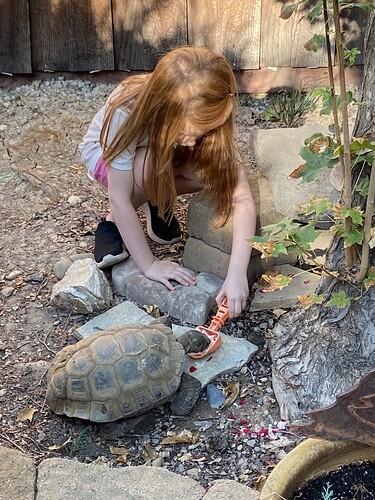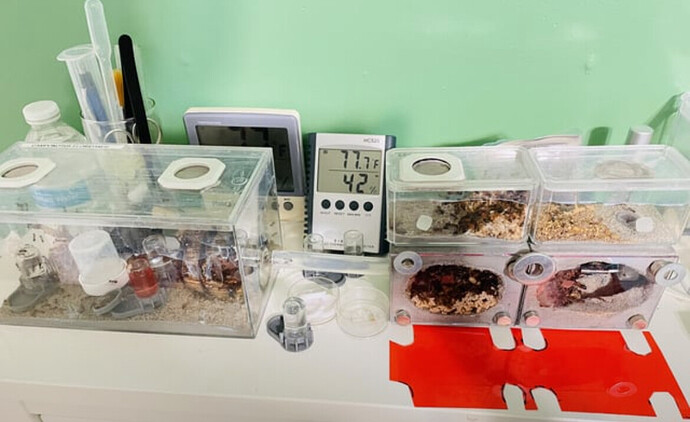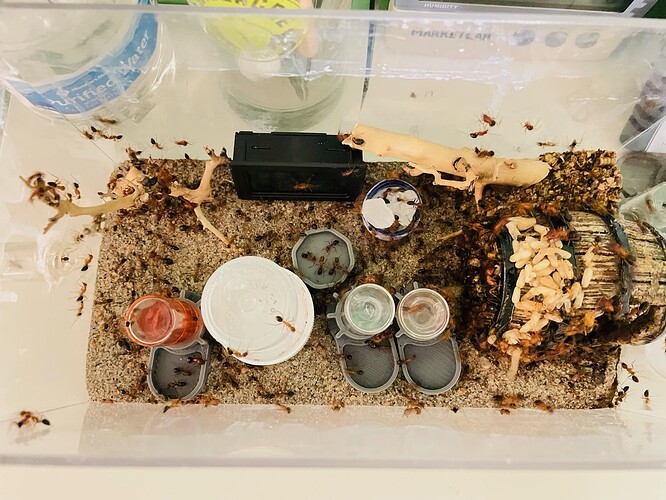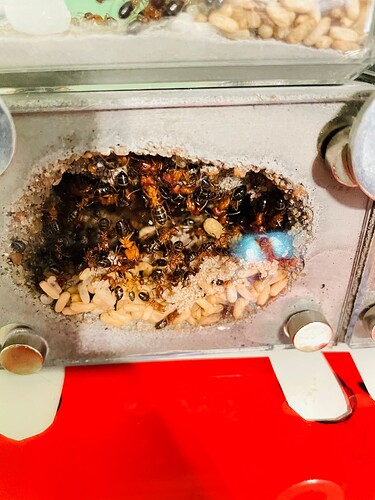sadly i do not have a pet, always wanted to get a parrot though (not big on dogs or cats tbh)
Why haven’t you gotten a parrot yet?
I can imagine you’d get funny looks if you used this naming convention on your dog ![]()
because my parents sadly said no and given that I’m 17, I cant really do much about it. but maybe someday though
Unexpected Roald Dahl
You mean my dog, Susej? Kidding! ![]()
We love Roald’s books! Essie came with that name, and we’d feel bad changing it. (She’s had that name for 50 years.) We also have “Russian” tortoises, which started with Bob and Sabby. Sabby had 7 babies. It was a little bit harder naming them because we wouldn’t know for years what they would be. I wanted to go with Hobbit/LOTR dwarves and/or Three Stooges names, but there was a little compromise. So, we have Dori for one of the boys, and Curly (Sue) and (Little) Moe for a couple of the girls. We also have a girl named Goldie. (She’s the mayor. “I like the sound of that!”)
Ok this may sound weird but I also have a growing Camponotus floridanus (Florida carpenter ant) colony.
They are contained in these connected nests, which are connected to a plastic “outworld” where I feed them and get them water.
This started off as a single queen in a test tube. This is about a year’s growth. I’m estimating (actually an AI tool counted) about 1,500 ants currently.
I found out after the fact that this queen can live 15-30 years in captivity. The colony could max out at (depending on who you read) between 10,000 and 20,000 ants.
Interesting ant facts:
-
Most (99%) of ants are female. The queen will produce males once a year for a nuptial flight. They breed once and die.
-
A queen just has to be fertilized once and she can produce eggs the rest of her life.
-
They truly have a separation of labor.
The queen handles all the reproductive work.
There are “nanny” ants that raise the brood and workers to gather food. Others are soldiers for protection and attacks. -
This species is polymorphic so there are different classes and sizes of ants.
You can kind of see in the picture below that there are at least 4 sizes on ants (5 if you include the queen, but I havent seen her for months)
(EDIT: zoom in and compare the size of their heads)
This species has majors and super majors that are enormous and are for offense/defense and also serve as mini refrigerators.
- Ants have two stomachs. One is for them and the other is the “social stomach”. They share food and water this way. In this species the large majors and super majors will store food and water in their social stomachs and it is a sterile way for them to preserve food for later.
Wow! I have a lot of fascination with the insect world. And love to know a lot about all sorts of species.
Ants are incredible and some of the facts you have mentioned above are crazy in a good and curious way.
I started out in college to be a biologist/entomology - but switched over to biomedical engineering. Yes, they are fascinating to watch and surprisingly easy to raise.
These ants are fun to watch. They have a “garbage dump” where they pile up all the waste and even have a graveyard where they move all their dead workers. The typical C. floridanus will go from egg to adult in about 2 months. An adult worker will live 8-10 months usually.
Absolutely fascinating!
This doesn’t sound weird at all. It sounds awesome!
I never knew so many facts about ants that I just read here. Really fascinating, Patrick. So what’s the “population threshold” you’ll tolerate and… when reached… what’s your plan to reduce? I’m wondering if it makes sense to separate a portion and relocate it somewhere in dense woods far from human habitation.
Releasing them isn’t an option, and they are not a native species, and in general it’s frowned on by ant keepers.
The USDA regulates the sale and shipping of ants in the US and to be in compliance it would will require you to kill them (usually in a freezer).
You can somewhat throttle the size of the colony by reducing how much (or how often) you feed them. (Hungry ants will eat the brood). So far the mrs has been tolerant of my hobbies, but this one is pushing her limits. So, I don’t plan on them expanding much beyond what we have already.
That is a really cool pet(s?) to keep!
I’ve read before about the pheromone that tells the ants to haul corpses to their local gravesite, and I’ve always wondered why that isn’t manufactured as an ant insecticide. I just image them all continually trying to grab each other and wrestle to the pile, leave, repeat ad nauseum. ![]()
“Bring out your dead!”
“I’m not quite dead!”
Had 2 great dogs. The first in my teens, great pal, I hand’t developed a “dad” spirit yet so I treated him like a brother. He was a german shepherd and lived c. 12 years. He was always catching flees from the poorly kept city gardens where everybody in Lisbon walked their dogs. It was troublesome and he suffered a bit from that. At that time there weren’t many solutions for parasites as we have now. Maybe I should have done more, idk, I was a kid, I had no knowledge. My parents were busy fighting each other, so I used to bathe him all the time, that was all I could do.
The second one was a big yellow “mountain” dog that I picked up in one of my walks. I actually didn’t want any more pets after the first one, but this guy darts off a house in a street where I was living up north near Coimbra and follows me down the road playing and rolling and biting my heels. When I get to my door I decide to pick him up and go back to the house where I’d seen him running from — when I get there they tell me he’s not theirs, that I can keep him. I immediately knew he wasn’t welcomed there so I bring him home again… Sort of presented him as an inevitability to my girlfriend… that wasn’t right… but she was nice and we kept him. He was 4 months old the vet told us when we brought him in for a check up.
He died in 2011 aged 11 but I still wake up in panic the middle of the night thinking he hasn’t been fed or had a poo in ages, where the hell is he… I’ve always worried too much about that dog… and I’m still not over it.
Loosing a pet can be emotionally equivalent to losing a close family member (parent, child, etc). It’s tough.





